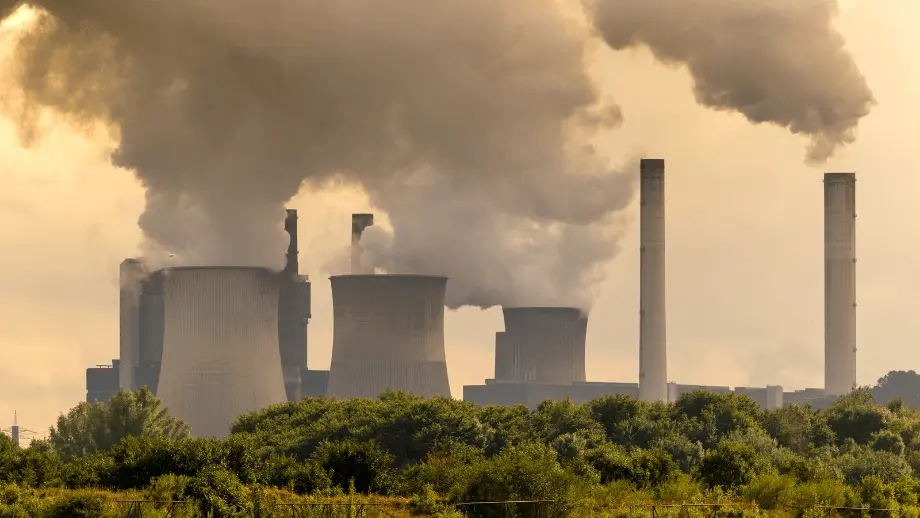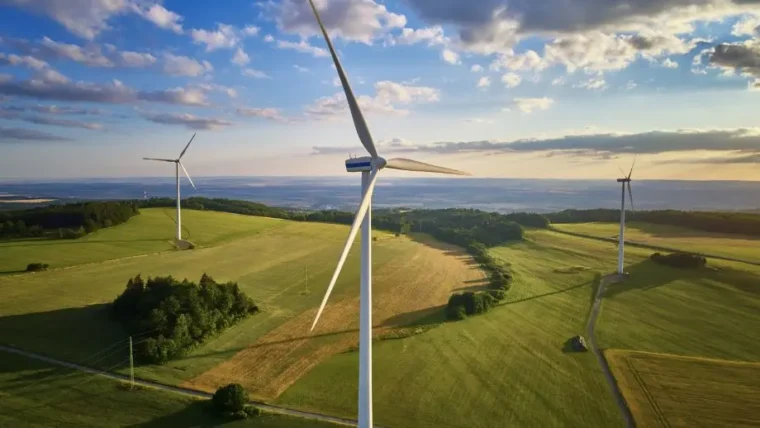Fortnightly Bulletin – 15th August 2022
16 August 2022

Dates for the Diary
Energy Security Bill 2022
The Energy Security Bill was introduced into Parliament on the 6th July 2022. The Bill aims to deliver a more affordable and secure energy system for the long term, following a rise in the global demand for energy and the price of gas reaching historically high levels.
The Bill intends to achieve this through the introduction of 26 measures across the following 3 overarching actions:
- leveraging private investment in clean technologies and building a homegrown energy system
- reforming our energy system to protect consumers from unfair pricing
- ensuring the safety, security and resilience of the UK’s energy system
This legislation is still pending and will apply to England, Wales, Scotland and Northern Ireland.
Factsheets on the Energy Security Bill have been published, which set out what DEFRA is legislating and how it will be achieved through the Bill.
These factsheets can be accessed here.
Guidance
Monitoring Emissions to Air, Land and Water (MCERTS)
If your business activities cause any environmental pollution, you may require an environmental permit by law to carry out the polluting activities. An environmental permit will set out any monitoring of emissions which is required, and how the monitoring should be carried out.
MCERTS is the Monitoring Certification Scheme for environmental permit holders which is used by the Environment Agency. MCERTS is used to approve individual engineers who carry out testing, as well as instruments and laboratories.
The guidance has been updated to provide performance standards and test procedures for water and flow monitoring, stack emissions monitoring, ambient air monitoring and soil monitoring.
The following link provides access to the full guidance.
Sites of Special Scientific Interest (SSSIs): Public Body Responsibilities
This guidance may be applicable if you:
- own or manage land in which an SSSI is situated
- If you manage land where an SSSI could be damaged or affected by off-site works – for example if you plan to carry out flood defence work nearby
- If you manage land where an SSSI could be damaged or affected by planned works by another party that you’ve been asked to approve – including work outside the boundaries of a SSSI work
Responsible public bodies include:
- government departments and their agencies
- local authorities, including planning authorities
- ‘statutory undertakers’ such as water and electricity companies
If applicable, you must take reasonable steps to conserve and enhance the special features of SSSIs.
You must assess the potential impact on SSSI land and any special habitats and species of any planned activities or works, including that proposed by others to which you may consent to.
To help assess potential impact, you can:
- Use the Designated sites system to find out which habitats and species are special features of a site, and which activities are likely to damage them
- Use the ‘Magic’ map to view all designations, impact risk zones, waterways and other land features
- Read specific guidance on responsibilities for protecting wild birds and their habitats – for example where bird species may be a special feature of an SSSI and could be affected by work on other land where they feed or nest
Full access to the guidance can be found here.
Articles of Interest
UK Launches ‘Biggest Electricity Market Reform in a Generation’
The Review of Electricity Market Arrangements (REMA) will seek views on a range of options to address the challenges of responding to higher global energy costs, the need to further boost energy security, and moving to a cleaner energy system.
This includes introducing incentives for consumers to draw energy from the grid at cheaper rates when demand is low or it’s particularly sunny and windy, saving households money with cheaper rates.
Under the current system, gas prices often end up setting the wholesale electricity price, because it is often the last source of supply to meet demand. REMA will explore ways of updating this pricing system to reflect the rise in cheaper renewable electricity.
Business and energy secretary, Kwasi Kwarteng, said: “We’ve just seen the price of offshore UK wind power fall to an all-time low and gas is a shrinking portion of our electricity generating mix, so we need to explore ways of ensuring the electricity market is adapting to the times.
“That includes ensuring the cost benefits of our increasing supply of cheaper energy trickle down to consumers, but also that our system is fit for the future – especially with electricity demand set to double by 2035.
“In what could be the biggest electricity market shake up in decades, I am confident that this review will significantly enhance Great Britain’s energy security and supply for generations to come.”
Access to the full article can be found here.
UK Facing ‘Green Skills Gap’ of up to 200,000 Workers
In a new report, PricewaterhouseCoopers (PwC), an international services brand, highlights how there are currently around 270,000 workers in the oil and gas sector who can transfer their skills towards delivering net zero.
However, around 20% are expected to retire by 2030, leaving only 216,000 transferable workers to help plug the 400,000 jobs needed to build the new energy workforce across areas such as nuclear, hydrogen and renewables. The report also suggests that increases in renewable energy generation will be constrained by this significant shortage of skilled labour.
On a positive note, the report suggests that job loss caused by the demise of carbon intensive industries will be far less than feared.
Demand for additional jobs in offshore wind is set to rise to 41,000 by 2026, and to increase to 40,000 by 2030 for nuclear. PwC said that as much as 90% of roles in the energy sector are transferable, meaning that net job losses are set to be minimal.
Dr Eduardo Rodriguez Monemayor, PwC’s labour market economist, said: “To secure the significant volume of workers needed to fuel the energy transition, the sector will need to draw from a more diverse pool of people.
“To attract more people into green energy jobs a range of interventions should be considered including ‘green’ apprenticeship programmes and technical green career pathways.
“If action to address this isn’t taken now, the UK is at risk of falling behind its roadmap to reach net zero and combat climate change, something that is front of mind given current energy prices, supply chain challenges and record-breaking temperatures.”
Access to the full article can be found here.
Fines and Prosecutions
Man Jailed for Illegally Importing and Burning Waste
A man who had entered guilty pleas earlier in the year was sentenced at Chelmsford Crown Court on 2nd August 2022, following his persistent importation and burning of waste on a large-scale at two sites in Essex.
In June 2020, officers visited one of the sites after concerns were raised from firefighters following several fires at the site.
The officers found large quantities of waste on the site, including waste electricals, household waste, and demolition waste, further piles of burned waste were also found. Further visits occurred in which the officers attempted to give the man opportunities to stop his activities and clear the site.
The man failed to clear the site and gave officers multiple conflicting accounts.
In September 2020, officers visited the second site, finding piles of burned waste, with flames up to two metres high. A gas cylinder was found amongst the embers by Essex Fire and Rescue.
Large soil piles contaminated with bricks, concrete, paving slabs and plastics were also identified.
After refusing to engage in further opportunities presented by the officers, the man was sentenced to 14 months imprisonment. The judge stated to the man that the two sites were “professional operations for your own gain. The impact of your behaviour on others was profound. You affected legitimate businesses and encouraged others to sink to the bottom like you.”
Access to the full article can be found here.
Online Learning and Events
45-Minute Masterclass; ESOS Phase 3 Compliance on the Road to Net-Zero
8th September 2022 1:00pm
With the ESOS Phase 3 compliance deadline now on the horizon, the Government’s consultation proposed some significant changes to the scheme which would raise the quality of ESOS audits from Phase 3 and beyond. The changes included helping businesses take action to reduce emissions, and ensuring that the ESOS recommendations are supportive of the UK’s overarching net-zero goals.
This 45-minute masterclass will seek to answer all these questions and more. The masterclass will be based around two expert presentations which break down the ESOS Phase 3 compliance process and outline key updates to the scheme. The session will culminate with a live audience Q&A, allowing you to have your ESOS and net-zero questions answered by our experts.
Click here to sign up for this event
Building for Net-Zero: Decarbonising the Built Environment Value Chain
20th September 2022 2:00pm
Globally, the global built environment is responsible for almost 40% of global energy-related carbon emissions and 50% of extracted materials. And, with rapid urbanisation and escalating climate change placing huge demands on our building infrastructure, it’s clear that we must move from ambition into action when it comes to achieving a net zero carbon, healthy, equitable and resilient built environment.
This edie webinar, hosted in association with Kingspan, will bring together designers and architects, contractors and end-user businesses to showcase how we can deliver real carbon reduction across the built environment value chain.
The session will be based around three expert presentations which provide examples of best practice and key takeaways for other businesses to decarbonise their buildings. The session will culminate with a live audience Q&A, allowing you to have your green questions answered by our experts.








